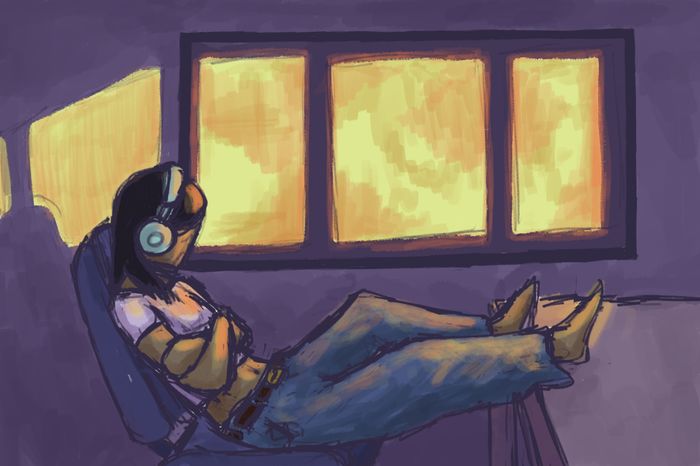Exploring Cambridge’s music scene in the shadow of London
Maria Sofia Milano sets out to prove that the Cambridge music scene can be far more than a sub-par London… if we can learn to let loose

Known for producing Nobel Prizes and pretentious dinner debates, Cambridge holds many titles before earning one for its deserving music scene. With critics mostly comprising of disappointed Reddit users and tipsy students at the Cambridge Blue, comparison to London seems inescapable. Seen as the less exciting, provincial cousin to the capital’s vibrant and abundant culture, the crown jewel of academia is described as hopelessly out of tune, dead, and predictable. But this is lazy criticism. Cambridge is not London, nor does it need to strive to be.
For a city its size, with such a transient, ever-rotating population of students, researchers, and academics, Cambridge offers surprising variety – if you know where to look. Gigs at the Portland Arms, jazz nights in Clare Cellars (right under a chapel), the Cambridge Folk Festival, and even the rare privilege of classical music and college choir concerts – often free of charge. Where else can you hear, quite casually, a talented and diverse choir while having lunch, or pick up free tickets to an intimate chamber music performance? These things are part of the institutional culture in Cambridge and, though often overlooked, are very valuable. They are chances for many to hear quality music that might feel inaccessible – an empowering opportunity to connect with something special.
“Cambridge is not London, nor does it need to strive to be”
While the institutional legacy offers opportunities, its deep-rooted norms often neutralise rebellion, especially for genres tied to a very strong counter-culture. This is evident in events such as the Factory Setting Clare Cellars takeover, the Halloween party held in a secret location that turned out to be a spare room in Clare College, or an event hosted by the Psychedelic Society in the Fisher Foyer of St John’s College. Despite the genres played (typically techno and psytrance), these events all felt sanitised - more like one-off performances than expressions of an entire way of life, a culture grounded in strong ideologies.
Maturing these reflections at the Psychedelic Society event held in December, I found the relationship between the crowd, the environment, and the music to be a shy interaction, a performance that never quite let loose. And then, at 1am sharp, there was this one guy who kept shouting something like, “Everyone out – my sleep schedule needs to be respected!” The whole thing was a stark reminder of how Cambridge’s need for order and balance always finds its way back in even in a space meant for something a bit more rebellious.

So, what is the role of the actual space, the venue, in producing the outcome of these events? Many of Cambridge’s music events take place in clean, temporary spaces – what anthropologists call non-places. These are more functional spaces than identity-carrying ones, and often without even a specific function. Unlike techno clubs or independent venues, usually with clear political values and a sense of social purpose, these spaces have absolutely none of that. All that flows freely underground (this collective energy, cultural resistance) is absent.
“Instead of disrupting the rebellion, the city absorbs the genre”
Consider the Fisher Foyer as an example: a multipurpose room that was going to be cleaned up and used for something much more academic and ordinary a couple of hours later. That certainly removes a lot of the cultural meaning and permanence and makes me think that not having appropriate independent spaces makes it almost impossible to make a long-standing statement. What happens is that, instead of disrupting the rebellion, the city absorbs the genre, making it quieter and more polite.
Maybe the truth is that music reflects its environment, and techno, rooted in rebellion, doesn’t quite fit against the backdrop of Cambridge’s privilege and tradition. Or maybe taking up space, adapting a genre born from rebellion to such an institutionalised environment, is a rebellious and healing practice. Certainly, the complexity might be addressed to make sure that we eventually navigate and overcome it. Finding a way to integrate genres that challenge the status quo and bring a more permanent diversity in terms of culture, and not just scattered events that keep you occupied on a Saturday night, is what will bring a new light to the music scene of the city.
For now, the city offers moments of expression that are polished, curated, and always on its terms – more performance than rebellion. The city’s cultural norms, which prioritise order, exclusivity, and tradition, shape not just its music, but everything. Alternative genres, particularly those with roots in resistance, remain lingering on the margins, sanitised into non-disruptive performances. Cambridge allows you to dance – but only if you do it within the framework it sets. Until independent spaces and genuine cultural engagement are nurtured, Cambridge’s music scene will continue to echo with untapped potential, always questioning: will it ever truly break free, or will it stay a carefully curated performance?
 News / Eight Cambridge researchers awarded €17m in ERC research grants27 December 2025
News / Eight Cambridge researchers awarded €17m in ERC research grants27 December 2025 News / Downing investigates ‘mysterious’ underground burial vault 29 December 2025
News / Downing investigates ‘mysterious’ underground burial vault 29 December 2025 Lifestyle / Ask Auntie Alice29 December 2025
Lifestyle / Ask Auntie Alice29 December 2025 Sport / Hard work, heartbreak and hope: international gymnast Maddie Marshall’s journey 29 December 2025
Sport / Hard work, heartbreak and hope: international gymnast Maddie Marshall’s journey 29 December 2025 Interviews / Meet Juan Michel, Cambridge’s multilingual musician29 December 2025
Interviews / Meet Juan Michel, Cambridge’s multilingual musician29 December 2025









